People tend to think of not knowing as something to be wiped out or overcome, as if ignorance were simply the absence of knowledge. But answers don’t merely resolve questions; they provoke new ones. Jamie Holmes
On a slow day a couple of weeks ago I baited my multitude of Facebook acquaintances who are fellow alums of St. John’s College (“The Great Books College”)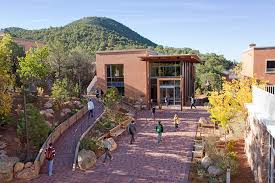 into an online conversation by listing, in no apparent order, a number of my philosophical preferences honed over several decades of studying and more than twenty-five years of teaching philosophy. I had started a recent blog post with this very same list.
into an online conversation by listing, in no apparent order, a number of my philosophical preferences honed over several decades of studying and more than twenty-five years of teaching philosophy. I had started a recent blog post with this very same list.
but only a few of my fellow Johnnies read my blog regularly, as far as I know, so I thought I’d tweak them directly by putting the list up on a “Johnnies Only” Facebook group page. One of the great features of a shared St. John’s education is that every alum has encountered the same authors, regardless of when they graduated— the Great Books curriculum changes less often than the worship of a liturgical church. Furthermore, I knew that all of my fellow alums would have at least spent a bit of time with each of the couple of dozen philosophers on my comparative list. I suspected that it would generate discussion, since no St. John’s graduate can resist expressing her or his opinion on just about anything—and I was right. In less than a minute one acquaintance commented “I disagree!” followed by dozens more. A sampling:
the Great Books curriculum changes less often than the worship of a liturgical church. Furthermore, I knew that all of my fellow alums would have at least spent a bit of time with each of the couple of dozen philosophers on my comparative list. I suspected that it would generate discussion, since no St. John’s graduate can resist expressing her or his opinion on just about anything—and I was right. In less than a minute one acquaintance commented “I disagree!” followed by dozens more. A sampling:
- I could hardly disagree with Mr. Morgan’s preferences, but I don’t share a lot of them.
- I like Aristotle as a naturalist, although sometimes he didn’t extrapolate the process from what he was observing.
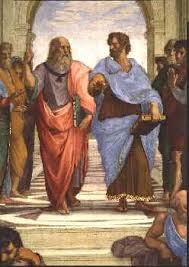
- Mr. XXX (a previous commenter), I assume that you are joking when you suggest that any reasonable reader would see Plato and Aristotle as anything other than polar figures defining an essential duality in ontologic thought.
- I’ll say that where Vance speaks of his preferences for isms and concepts (empiricism vs. rationalism, the particular vs. the universal, etc.), he seems to be choosing half a loaf rather than the entire loaf. That is, the best philosophy will find a place for the particular AND the universal, the empirical AND the rationalistic, etc. Indeed, some of the philosophers Vance prefers (e. g., Aristotle, Nietzsche, later Wittgenstein) do precisely that.
You get the point. I did not participate in the discussion at first—it was as good as a classroom seminar taking off so energetically that I no longer needed to direct it.
Eventually the discussion turned toward  Descartes (Mr. Certainty) vs. Montaigne (Mr. Skepticism). I have written frequently in this blog about my conviction that certainty is not only vastly overrated but also is not generally available to creatures with knowledge tools such as ours—hence my love for Montaigne and my weariness with Descartes. This did not go over well with some of the Facebook participants.
Descartes (Mr. Certainty) vs. Montaigne (Mr. Skepticism). I have written frequently in this blog about my conviction that certainty is not only vastly overrated but also is not generally available to creatures with knowledge tools such as ours—hence my love for Montaigne and my weariness with Descartes. This did not go over well with some of the Facebook participants.
- Me: Montaigne would actually agree with the last sentence in Pascal’s first paragraph, and “the common talk of life” is probably the best place to begin philosophy. There’s a reason why I love Epictetus and the Stoics as much as I love Montaigne. And as a final comment–certainty is vastly overrated.
- Mr. X: I am not sure you are right, Vance.
- Vance Morgan: That certainly would not be the first time–but about what?
- XXX: About certainty being overrated!
- Vance Morgan:
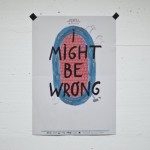 I’ll take open endedness and the real possibility that I might be wrong or have a lot to learn on anything whatsoever over conviction of certainty any day!
I’ll take open endedness and the real possibility that I might be wrong or have a lot to learn on anything whatsoever over conviction of certainty any day!
- XXX: Wit, are you saying you are certain that certainty is overrated?
- Vance Morgan: It is highly probable that certainty is overrated–but I might be wrong.
- XXX: Ok now I am on board!
Imagine my pleasure just a few days later when the NY Times feed in my morning email announced an Op-Ed with the provocative title “The Case for Teaching Ignorance.”
The Case for Teaching Ignorance
“I’m going to read this” I announced to Jeanne—“Of course you are,” she replied—and I was not disappointed. Of course who wouldn’t expect a philosophy/humanities professor to resonate with passages such as
The more we know, the more we can ask. Questions don’t give way to answers so much as the two proliferate together. Answers breed questions. Curiosity isn’t merely a static disposition but rather a passion of the mind that is ceaselessly earned and nurtured.
and
Educators should devote time to the relationship between ignorance and creativity and the strategic manufacturing of uncertainty.
This is great stuff for someone (me) who defines his home discipline of philosophy as “the art of asking better and better questions” and tells his students that his job is to disturb their peace.
 But what made Jamie Holmes’ essay particularly satisfying and fascinating is that it is a report straight out of STEM world (that’s Science, Technology, Engineering and Mathematics for those of you who are tired of being overwhelmed by acronyms). The term is typically used when addressing education policy and curriculum choices in schools to improve competitiveness in science and technology development. Politicians and educators of all stripes and persuasions have been urging the importance of educating students in the STEM disciplines for some time now; these are the disciplines on the cutting edge of the future (and ones that might actually get a college graduate a freaking job). Calls for STEM emphasis in education and curriculum development, either directly or indirectly, are often energized by the assumption that it is time to de-emphasize fuzzy humanities and liberal arts curricula as we train the next generation for what is to come.
But what made Jamie Holmes’ essay particularly satisfying and fascinating is that it is a report straight out of STEM world (that’s Science, Technology, Engineering and Mathematics for those of you who are tired of being overwhelmed by acronyms). The term is typically used when addressing education policy and curriculum choices in schools to improve competitiveness in science and technology development. Politicians and educators of all stripes and persuasions have been urging the importance of educating students in the STEM disciplines for some time now; these are the disciplines on the cutting edge of the future (and ones that might actually get a college graduate a freaking job). Calls for STEM emphasis in education and curriculum development, either directly or indirectly, are often energized by the assumption that it is time to de-emphasize fuzzy humanities and liberal arts curricula as we train the next generation for what is to come.
So it was a pleasure to read STEM people from neuroscientists to surgeons saying things like
Presenting ignorance as less extensive than it is, knowledge as more solid and more stable, and discovery as neater also leads students to misunderstand the interplay between answers and questions.
and
Discovery is not the neat and linear process many students imagine, but usually involves feeling around in dark rooms, bumping into unidentifiable things, looking for barely perceptible phantoms.
Michael Smithson, one of the scholars referenced in the article, provides an interesting metaphor to illustrate the important dynamic between what we know and what we don’t know. 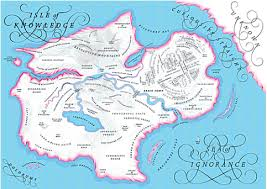 Imagine human knowledge as an island in a vast sea of ignorance. The island is dynamic and growing—living in the middle of it one might think it is a continent and be unaware of the surrounding sea. Smithson points out that the larger the island of knowledge grows, the longer the shoreline — where knowledge meets ignorance — extends. Pushing the metaphor further, James Holmes writes that
Imagine human knowledge as an island in a vast sea of ignorance. The island is dynamic and growing—living in the middle of it one might think it is a continent and be unaware of the surrounding sea. Smithson points out that the larger the island of knowledge grows, the longer the shoreline — where knowledge meets ignorance — extends. Pushing the metaphor further, James Holmes writes that
Mapping the coast of the island of knowledge . . . requires a grasp of the psychology of ambiguity. The ever-expanding shoreline, where questions are born of answers, is terrain characterized by vague and conflicting information. The resulting state of uncertainty, psychologists have shown, intensifies our emotions: not only exhilaration and surprise, but also confusion and frustration.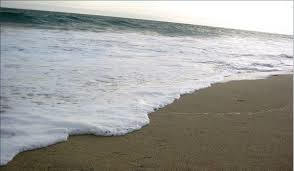
Exactly—this is why the teaching profession and facilitating the life of learning is so exhilarating and fascinating. I like the shoreline analogy, adding only that the shoreline between sea and land is always fluctuating as the tide rolls in and rolls out. The line of demarcation between land and water, between knowledge and ignorance, is shifting sand—that’s the territory of true learning. The pedagogy of uncertainty and ignorance favors questions over answers, uncertainty over certainty, the unknown over the set and established.
Focusing on uncertainty can foster latent curiosity, while emphasizing clarity can convey a warped understanding of knowledge. . . . Giving due emphasis to unknowns, highlighting case studies that illustrate the fertile interplay between questions and answers, and exploring the psychology of ambiguity are essential.
Happy semester to my colleagues in the teaching profession as they joyfully make their new charges aware of our collective ignorance!












